The law does not pretend to punish everything that is dishonest. That would seriously interfere with business
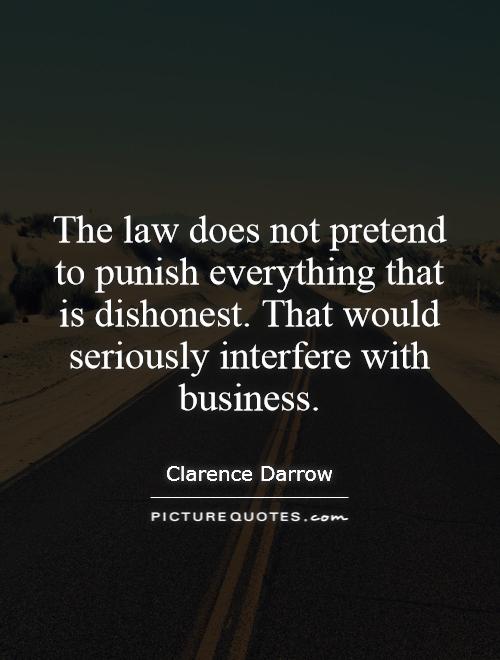
The law does not pretend to punish everything that is dishonest. That would seriously interfere with business
Clarence Darrow, a renowned American lawyer and civil libertarian, was known for his defense of individuals accused of crimes and his advocacy for social justice. Throughout his career, Darrow often challenged the legal system and questioned the morality of certain laws and regulations. One of his most famous quotes, "The law does not pretend to punish everything that is dishonest. That would seriously interfere with business," reflects his belief that the legal system is not always just or fair in its treatment of individuals.Darrow's statement highlights the complex relationship between the law and business practices. In a capitalist society, businesses are often driven by profit and competition, which can sometimes lead to unethical or dishonest behavior. However, the law is not always equipped to address every instance of dishonesty or misconduct in the business world. This is due to a variety of factors, including limited resources, competing priorities, and the difficulty of proving intent in cases of white-collar crime.
Darrow's assertion that punishing every act of dishonesty would interfere with business suggests that there is a delicate balance between enforcing the law and allowing for the free market to operate. While it is important to hold individuals and corporations accountable for their actions, overly strict regulations and enforcement could stifle innovation and economic growth. Darrow recognized the need for a nuanced approach to addressing dishonesty in business, one that takes into account the complexities of the modern economy.
Furthermore, Darrow's quote can also be interpreted as a critique of the legal system itself. He believed that the law is not always a perfect instrument of justice and that it can be influenced by political and economic interests. Darrow's skepticism of the legal system reflects his broader concerns about the power dynamics at play in society and the need for greater transparency and accountability in the legal process.

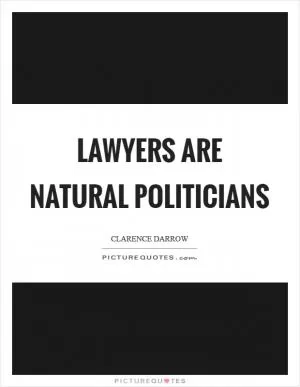



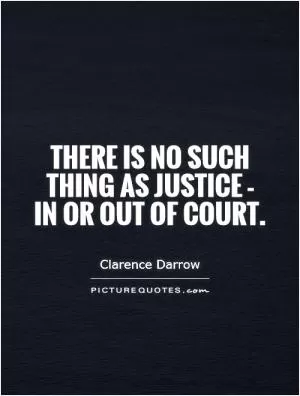
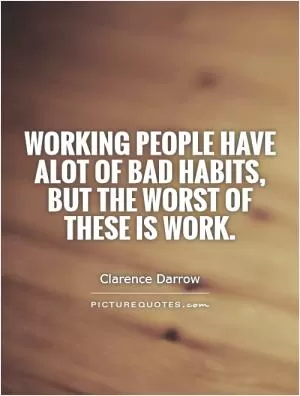

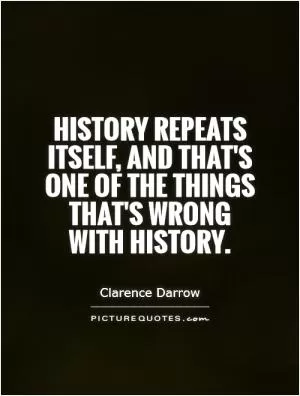

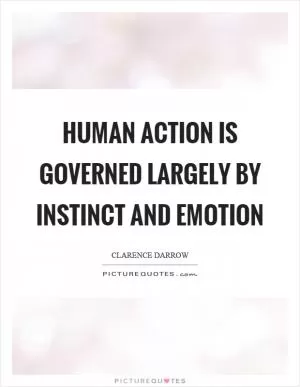
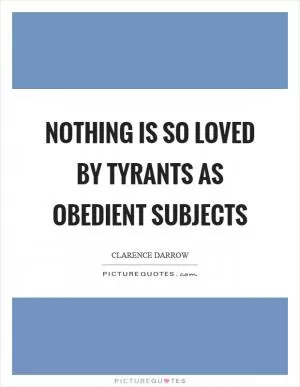
 Friendship Quotes
Friendship Quotes Love Quotes
Love Quotes Life Quotes
Life Quotes Funny Quotes
Funny Quotes Motivational Quotes
Motivational Quotes Inspirational Quotes
Inspirational Quotes